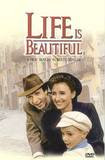 |
| Markus at SEP conferences Wednesday night |
I just read the Tiger Mother article and while I was reading it Markus asked me what it was about and after I tried to explain what a Tiger Mother was to him, he said, "That's sad." I saw another article that made me stop and think in the New Yorker but if you don't have time to read both of these articles (although you really should—just take a few minutes from the time you dedicate to shopping online), here’s a snippet from the beginning of it, that will give you an idea of what has been swimming around in my head lately:
Occasionally, you meet a young, rising member of this class [described by Brooks as successful, healthy, educated, striving---the type of people it seems the Tiger Mother hopes her children will grow up to be] at the gelato store, as he hovers indecisively over the cloudberry and ginger-pomegranate selections, and you notice that his superhuman equilibrium is marred by an anxiety. Many members of this class, like many Americans generally, have a vague sense that their lives have been distorted by a giant cultural bias. They live in a society that prizes the development of career skills but is inarticulate when it comes to the things that matter most. The young achievers are tutored in every soccer technique and calculus problem, but when it comes to their most important decisions—whom to marry and whom to befriend, what to love and what to despise—they are on their own. Nor, for all their striving, do they understand the qualities that lead to the highest achievement. Intelligence, academic performance, and prestigious schools don’t correlate well with fulfillment, or even with outstanding accomplishment. The traits that do make a difference are poorly understood, and can’t be taught in a classroom, no matter what the tuition: the ability to understand and inspire people; to read situations and discern the underlying patterns; to build trusting relationships; to recognize and correct one’s shortcomings; to imagine alternate futures. In short, these achievers have a sense that they are shallower than they need to be.
So should our children—pay whatever price is necessary in order to be successful. The goal of such a life isn’t happiness, necessarily, but recognition, status, and achievement, which somehow ought to translate into happiness. I am not immune to being driven by such goals; in fact, I think ours is a highly recognition-driven culture. But the Tiger Mother article left me wondering about what my goals should be, both for my children and for myself, and whether or not it’s really possible to have both a highly accomplished life and a truly happy one. I really don't know an answer to this question. Just asking.
Among the many tidbits scattered throughout the articles, I learned that researchers have found that “what the inner mind really wants is connection,” that “the daily activities most closely associated with happiness are social,” and that “joining a group that meets just once a month produces the same increase in happiness as doubling your income.” So while it might be pretty impressive to have a child who plays at Carnegie Hall at the age of 14, according to scientific studies, we’re more likely to set our child up for a happy life if we encourage him to go play with his friends.
“Happiness” is a tricky state to measure, and all of us will experience various levels of satisfaction and sadness throughout our lives. Some of us are naturally inclined to joy and exuberance, while others struggle to find happiness. Our personal happiness set-point is not an indication of our satisfaction, but most often due to genetic and other circumstances outside our control. I sometimes struggle but I usually have a natural inclination toward happiness and a cheerful disposition that I was born with.
However, each of us can optimize our happiness in this life. I want my children to grow up with the greatest chance for happiness. I want to be happy myself. It’s easy to get so swept up in the excitement of accomplishment, to think that “if only” we’d had the chance to become that world-famous or extraordinary [baseball player, Miss America, physical therapist] we’d be happier, that if we don’t supply our kids with an endless parade of [Little League, SAT tutoring, Suzuki method piano] then they won’t be happy and, horror of horrors, will blame us. (My mom said they will anyways!) Of course, Little League and the Suzuki method can be components of a happy life, but when I fall for the idea that they’re necessary ingredients to a happy life, that’s when I seem to get off track.
I want to be better.
I want to be able to understand and inspire people. To read situations and discern the underlying patterns. To build trusting relationships. To recognize and correct my shortcomings; and man do I have many! To imagine alternate futures. That is what is real. The fact that it makes me feel okay about letting my kids quit piano lessons is just a bonus.













